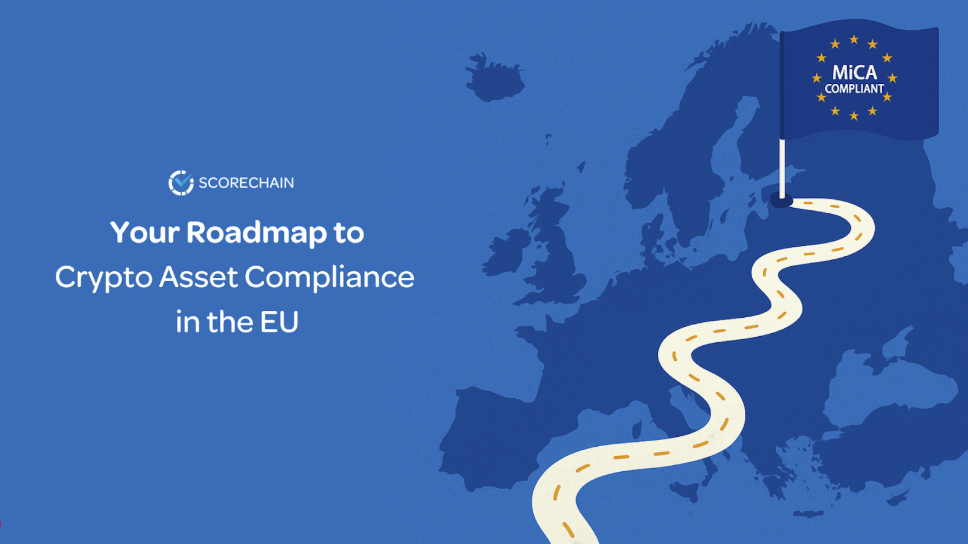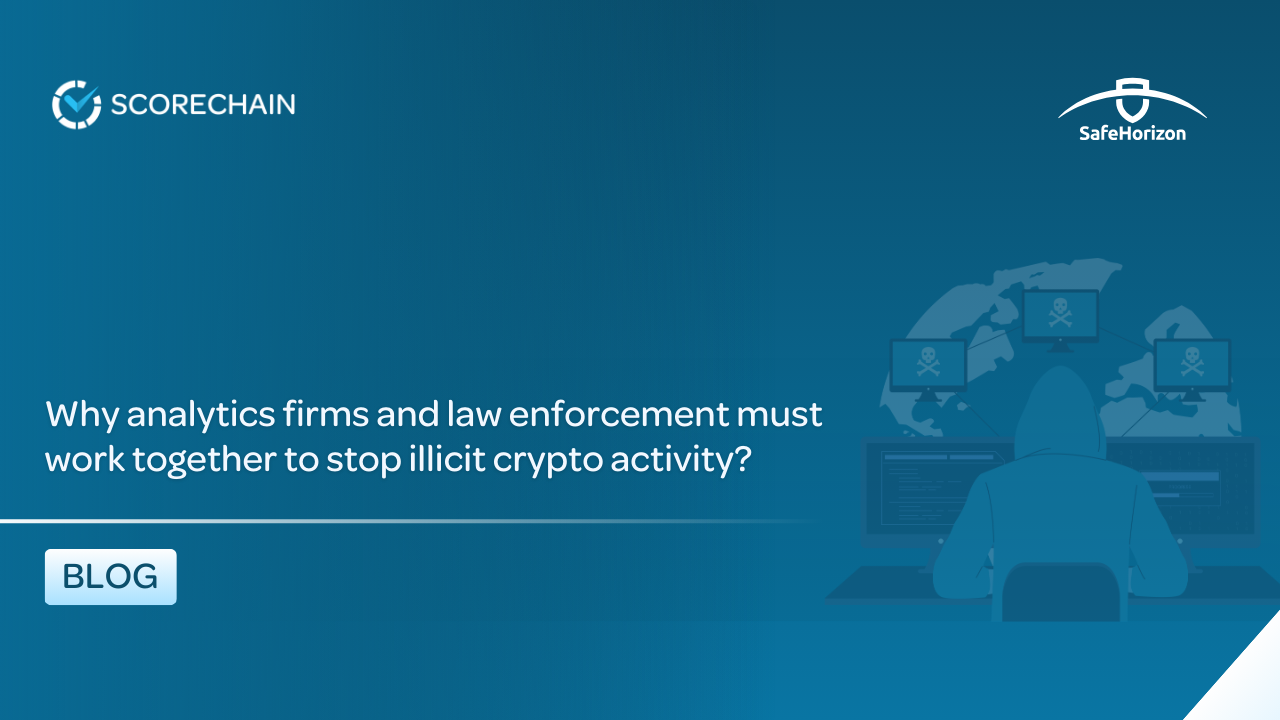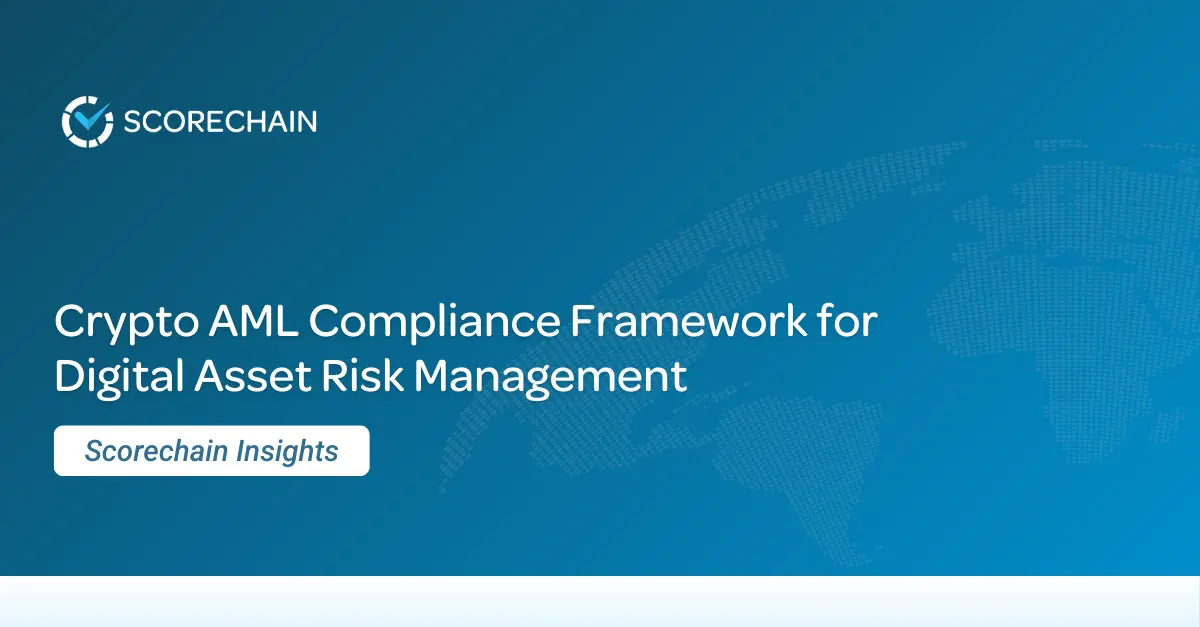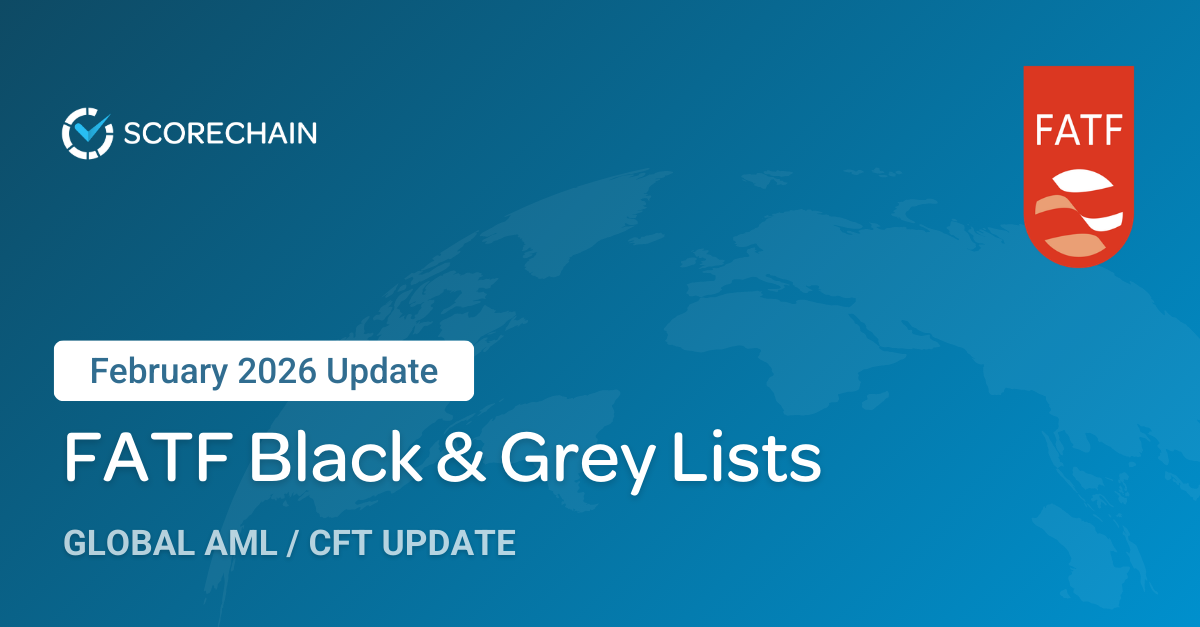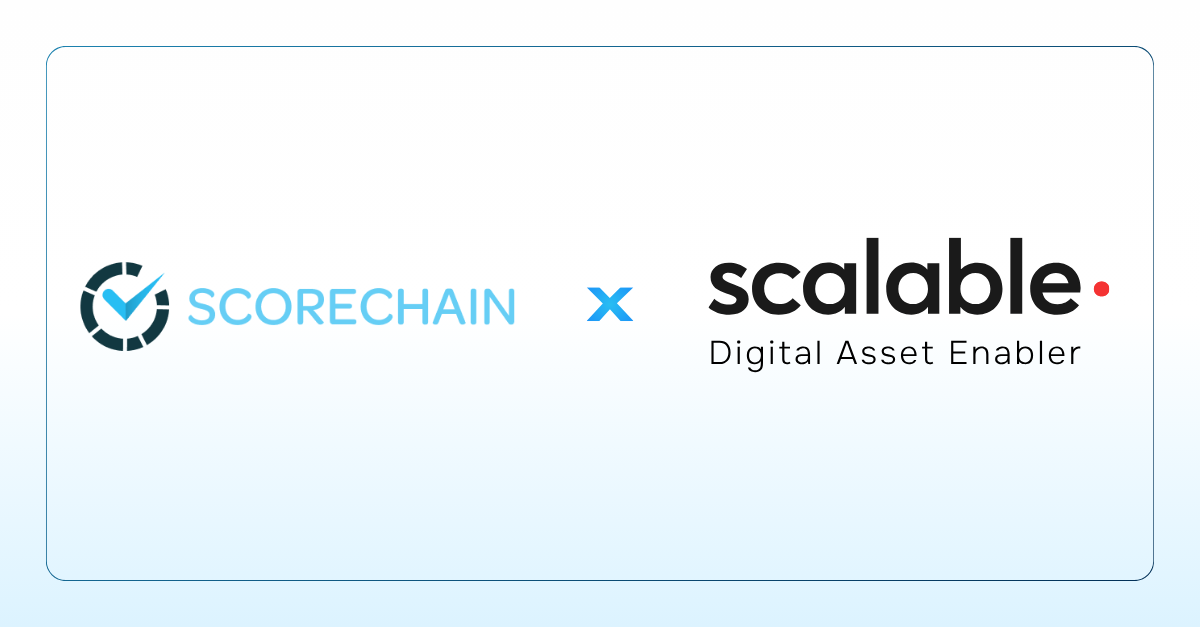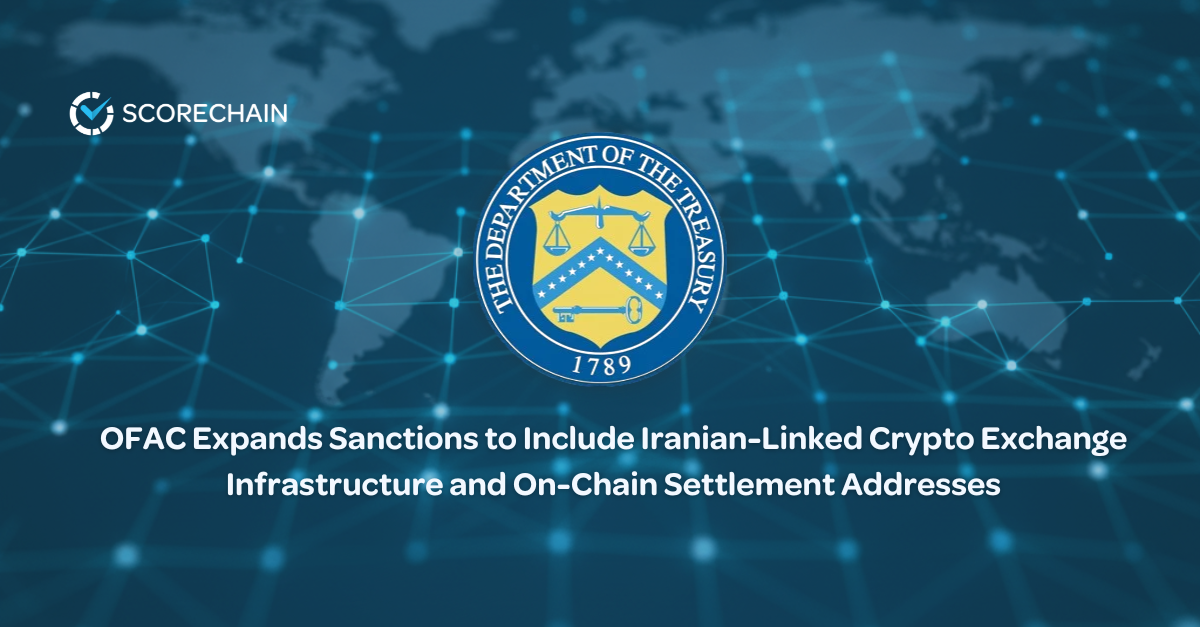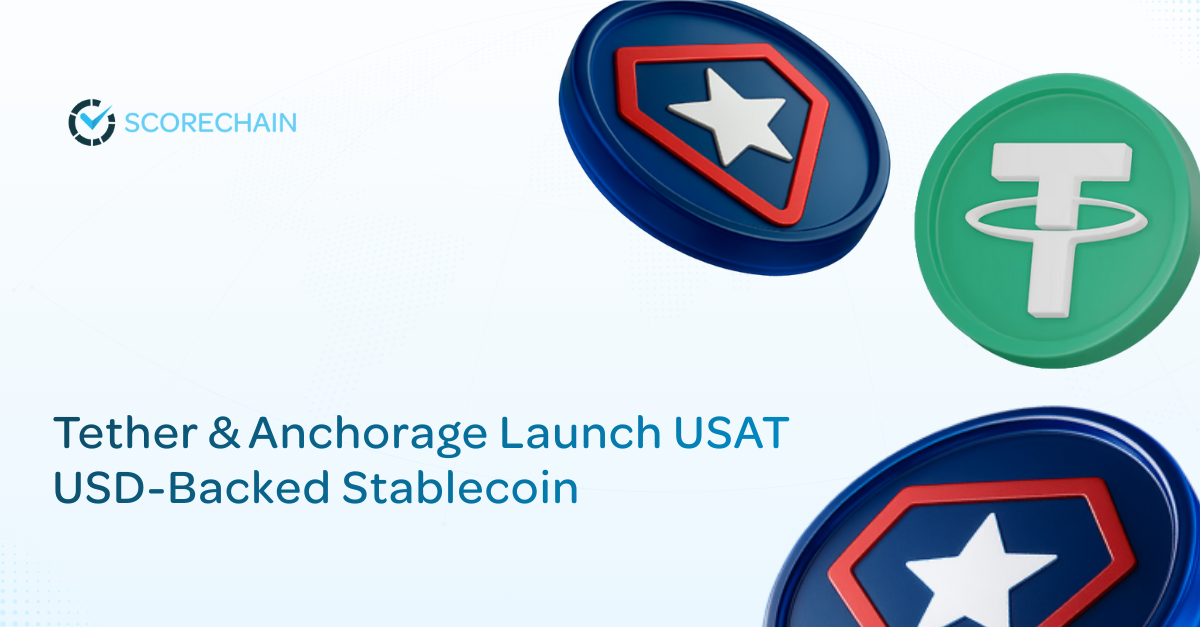Table of Contents
- What is the MiCA Regulation?
- What Are the Core Requirements of MiCA?
- How Are Member States Implementing MiCA?
- What Challenges Are CASPs Facing?
- Real-Life Compliance Examples
- Scorechain: Your MiCA Compliance Companion
- FAQ: MiCA Regulation
1. What is the MiCA Regulation?
The Markets in Crypto‑Assets Regulation (MiCA), EU Regulation 2023/1114, marks the bloc’s first broad legal framework for cryptocurrencies and digital assets.
Fully applicable since 30 December 2024, its goal is to harmonize crypto rules across all 27 member states - adding clarity, deterring abuse, and boosting investor trust.

2. What Are the Core Requirements of MiCA?
a. Authorization & Passporting
CASPs (wallets, exchanges, custodians) need a license from a national regulator and must establish a local office and EU-based director. Once authorised, services can be passported across the EU.
b. White Papers & Issuer Rules
Token issuers (excluding small-scale) must produce a white paper and operate under a legal entity.
c. Stablecoin Regulations
EMTs and ARTs must maintain reserves, governance, redemption protocols, and transparency obligations.
d. Governance & Market Conduct
CASPs must act “honestly, fairly and professionally,” publish fees, manage conflicts, and disclose relevant info .
e. AML, KYC & Market Surveillance
Rigorous KYC, real‑time wallet screening, Travel‑Rule alignment, and anti‑market‑abuse surveillance are mandated.

3. How Are Member States Implementing MiCA?
While MiCA is directly binding, implementation varies:
- Different timelines: Some countries completed implementing laws early in 2025; others lag behind.

- Grace periods: Ranging from 6 to 18 months -Luxembourg offers up to 18 months; Germany’s grandfathering ends by December 2025; Italy wrapped implementation in June 2025 .
- By April 2025, only 17 CASPs have been authorised in 7 member states. CONSOB (Italy) already took enforcement actions against non‑compliant VASPs
4. What Challenges Are CASPs Facing?
- Uneven adoption: Some regulators are slow, creating enforcement blind spots .
- Hybrid token ambiguity: EMTs classified as funds and crypto-assets -blurring PSD2 overlap.
- DeFi/NFT uncertainty: National approaches may "gold-plate," exceeding MiCA’s baseline.
- Stablecoin burden: Reserve transparency and redemption obligations introduce complexity and cost.

5. Real-Life Compliance Examples
- Banking Circle's EURI became one of the first MiCA-compliant euro stablecoins, building compliant issuance and reserve systems.
- Coinbase delisted Tether (USDT) in the EU due to license uncertainty .
- Reports show 42% of European crypto startups face rising compliance costs post-MiCA implementation.
6. Scorechain: Your MiCA Compliance Companion
Scorechain is a crypto compliance intelligence platform trusted by financial institutions, regulators, and crypto-native businesses across Europe and beyond.
Our mission is to help Crypto Asset Service Providers (CASPs) navigate complex regulations- like MiCA, AML directives, and the Travel Rule - with total confidence, automation, and accuracy.
Whether you're an exchange, wallet provider, stablecoin issuer, or traditional financial institution entering crypto, Scorechain helps you stay compliant, avoid risk, and grow securely.
Scorechain offers a holistic end-to-end suite tailored to MiCA’s demands.
Think of Scorechain as your crypto compliance control center:
- Connect your wallets, transactions, and customer data.
- Monitor every activity - real time screening, address tracing, transaction scoring.
- Act on alerts, generate reports, automate due diligence.
- Report directly to regulators or auditors with standardized, MiCA-ready exports.

All on the platform. All designed to meet and exceed MiCA requirements.
Features Built for MiCA Success
AML & KYC Screening
Automated, real-time monitoring.
- Screen wallet addresses for links to sanctioned entities, PEPs, and criminal activity
- Detect high-risk behaviors: layering, structuring, darknet transactions
- Monitor new addresses in your ecosystem for compliance reputation scoring
- Fully aligned with MiCA's emphasis on anti-money laundering and counter-terrorism finance
MiCA-Ready Reporting
No need to manually compile audit trails or generate compliance exports.
- Generate regulator-friendly reports for BaFin, AMF, CNMV, CSSF, and others
- Use prebuilt templates aligned with MiCA’s RTS/ITS standards
- Export historical data, incident logs, and transactional flags for license reviews or surprise audits
Travel Rule Compliance
MiCA expects CASPs to comply with the FATF Travel Rule for fund transfers.
- Automate sender/receiver data exchange with other VASPs
- Anchor cross-border transactions with verified identity records
- Log Travel Rule interactions for NCA inspection and incident resolution
Customizable Risk Rules
Scorechain lets you tailor your compliance logic.
- Set your own thresholds for transaction volumes, counterparty risk, or jurisdictional exposure
- Build smart rules that reflect your token utility, customer base, or regional model
- Adapt instantly when MiCA evolves (e.g., future NFT or DeFi guidance)
Multi-Chain Intelligence
MiCA applies across all your digital assets—Scorechain covers them.
- Monitor major chains: Bitcoin, Ethereum, Polygon, Tron, and more
- Visualize flow charts, trace high-risk funds, and identify wash trading or mixer use
- Get asset-specific risk scores for stablecoins, utility tokens, or wrapped assets
Tamper-Proof Audit Trail
For MiCA-licensed entities, audits are inevitable. Make them painless.
- Scorechain automatically records every alert, action, and compliance note
- Maintain a read-only log of suspicious activity reports, investigations, and resolutions
- Provide evidence-ready audit trails for annual reviews or incident response

Live Case:
A mid-sized CASP integrated Scorechain to automate KYC flows, wallet screening, risk flags, and Travel-Rule enforcement, resulting in a successful mock ESMA review in hours.
Bonus Scorechain Benefits
Built in Europe, for Europe
We speak your regulatory language - whether you're dealing with BaFin, AMF, CNMV, or CSSF.
Human Support That Knows Your Business
Every Scorechain client gets direct access to expert compliance support - not just chatbots or email forms. Need help prepping your whitepaper annex? Want feedback on your AML policy before filing? We’ve got you covered.
Scalable Infrastructure
From startups to top-tier banks, Scorechain scales with your needs. Handle millions of transactions, screen hundreds of wallets, or monitor token usage globally -with no performance bottlenecks.
Plug-and-Play Integrations
Easy APIs and Webhooks make Scorechain fit into your stack, whether you're using third-party KYC vendors, internal case management, or regulatory portals.

7. FAQ: MiCA Edition
Q: When did MiCA become law?
MiCA entered into force on 29 June 2023, with two key compliance deadlines: 30 June 2024 (stablecoins) and 30 December 2024 (CASPs and others).
Q: What documents must be submitted to regulators?
To apply for MiCA authorization as a Crypto Asset Service Provider (CASP) or token issuer, you'll need to provide:
- Application form with company and service details
- AML & KYC policy documents
- Internal governance framework
- Business continuity and cybersecurity policie
- Whitepaper (for public crypto offerings or token issuance)
- Risk assessment and compliance structure
- Proof of fit & proper management team
- Travel Rule compliance documentation (if applicable)
Requirements may vary slightly between EU member states. Scorechain tracks and aligns with jurisdiction-specific demands.
Q: Who is affected by the MiCA Regulation?
MiCA applies to:
- Crypto Asset Service Providers (CASPs): exchanges, custodians, wallet providers, brokers, advisors, and crypto-to-fiat on/off ramps
- Token issuers offering ARTs, EMTs, and other crypto-assets to the public in the EU
- Traditional financial institutions offering crypto services
- Non-EU firms targeting EU-based customers
In short: if you deal with crypto in the EU, you’re likely in scope.
Q: Who do you apply to for authorization?
Authorization requests must be submitted to your local National Competent Authority (NCA) - the financial supervisor in your country.
Examples include:
- 🇫🇷 AMF in France
- 🇩🇪 BaFin in Germany
- 🇪🇸 CNMV in Spain
- 🇱🇺 CSSF in Luxembourg
- 🇲🇹 MFSA in Malta
Q: Are non-EU firms included?
Yes - if you service EU clients or maintain EU wallets, MiCA applies. Passport rights enable cross-border services.
Q: What are penalties for non-compliance?
Fines vary by country, but can reach millions or lead to license suspension. Reputational fallout is a major risk .
Q: Do DeFi and NFTs count?
While covered generically, DeFi and NFTs introduce grey areas. National approaches vary - so assess local guidance.
Ready to take MiCA compliance off your worry list?
Book a call with Scorechain and learn how we help crypto companies reduce the cost, risk, and complexity of meeting MiCA requirements.
.png)
